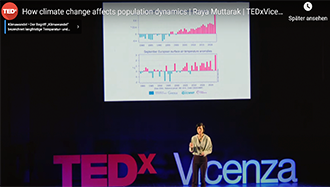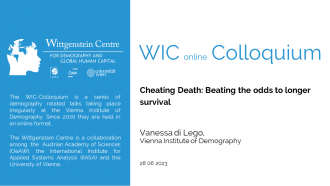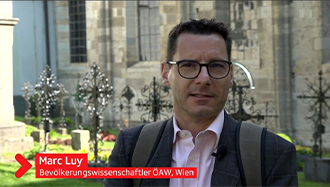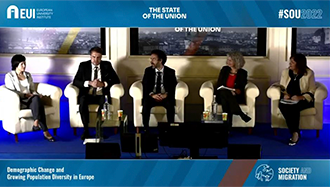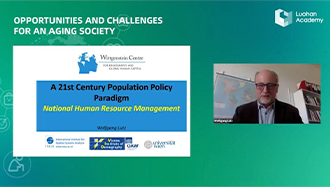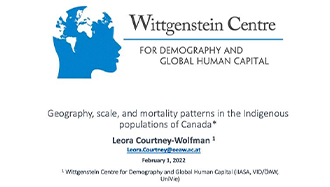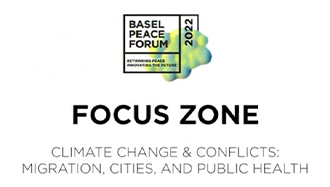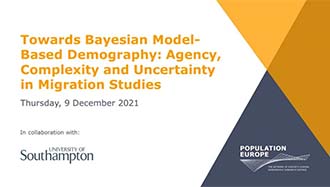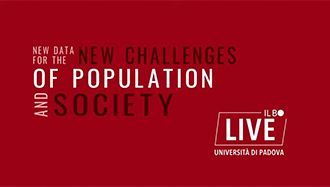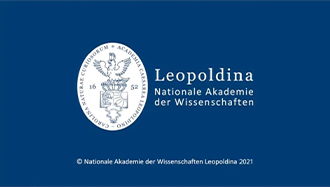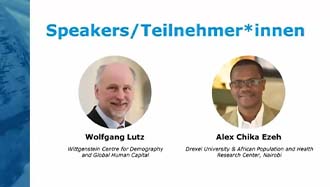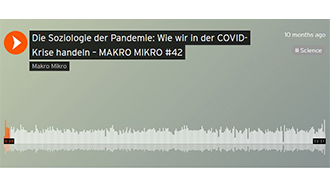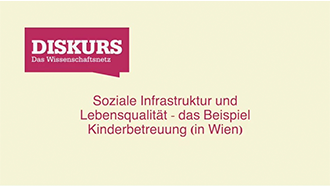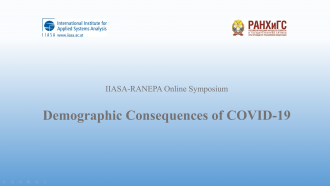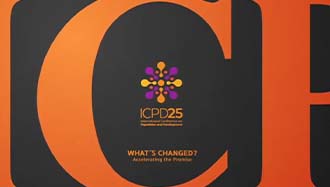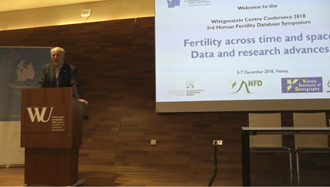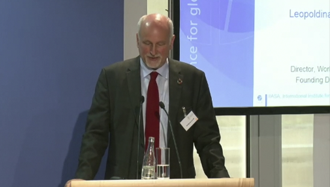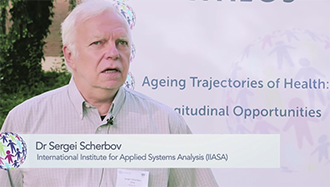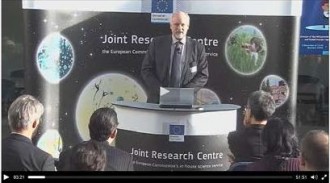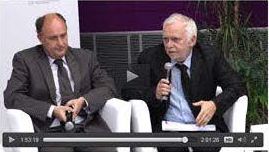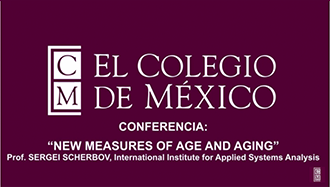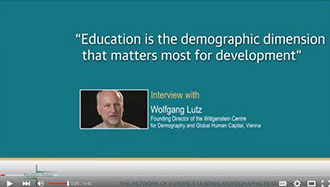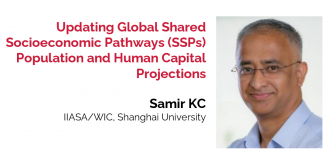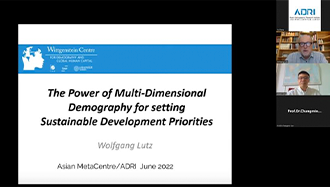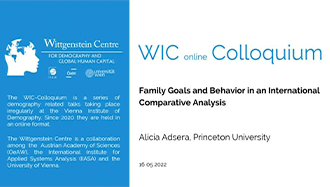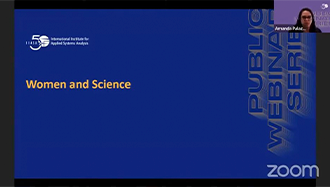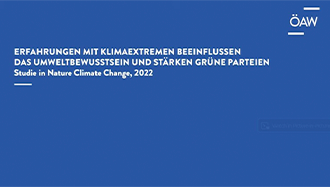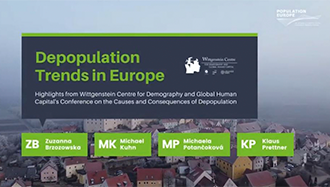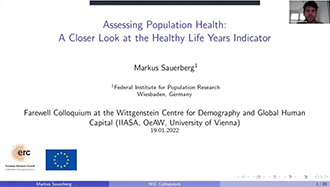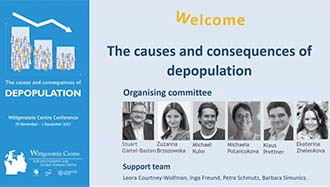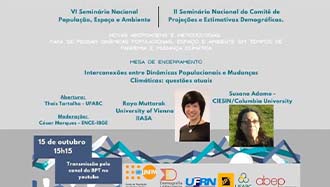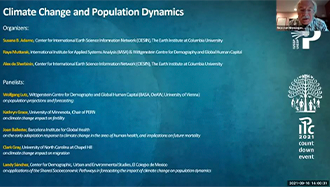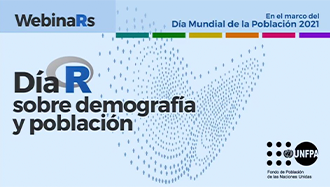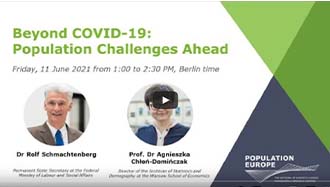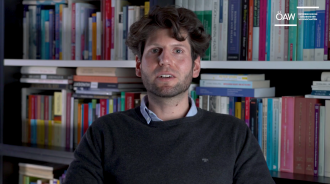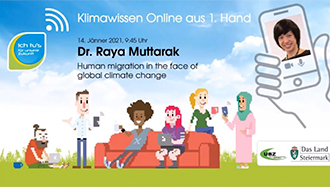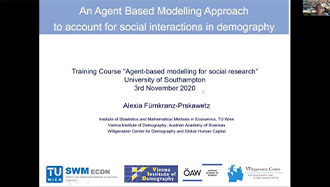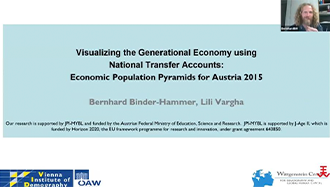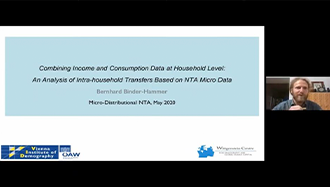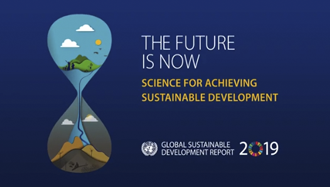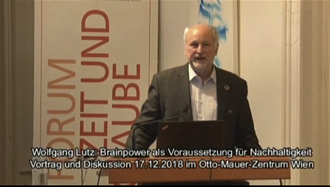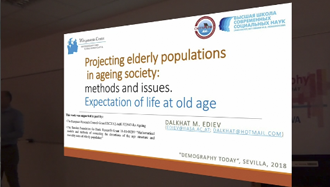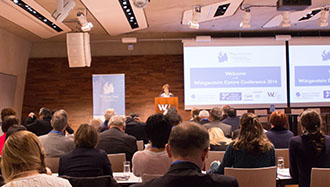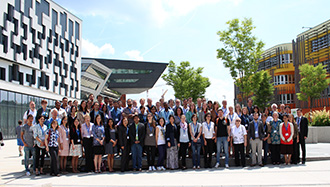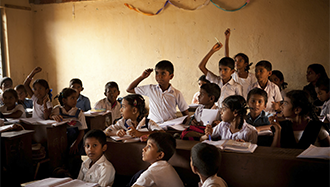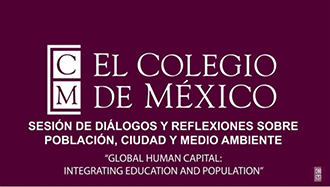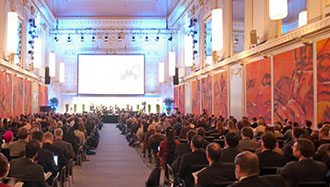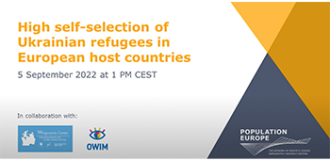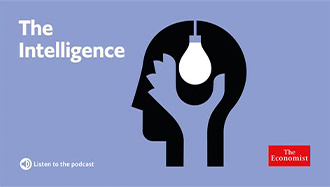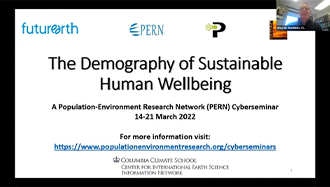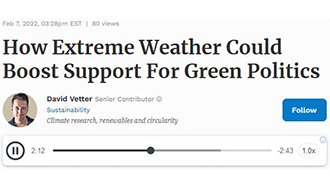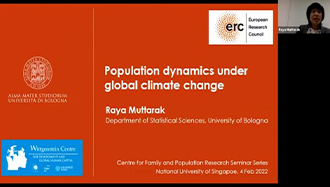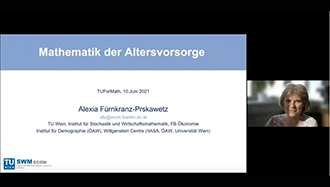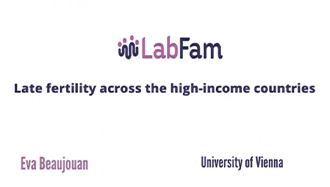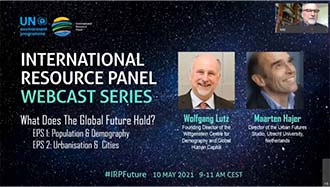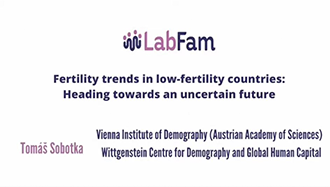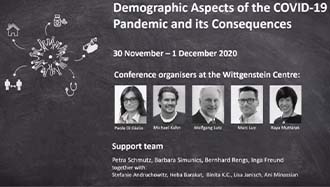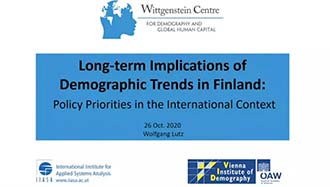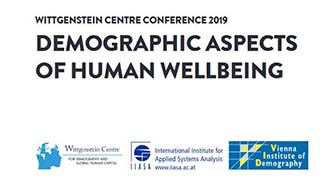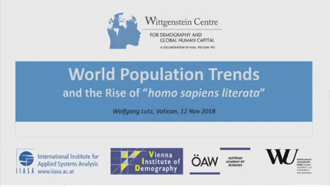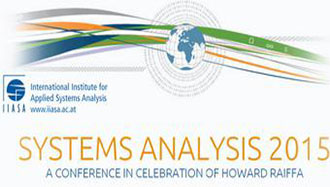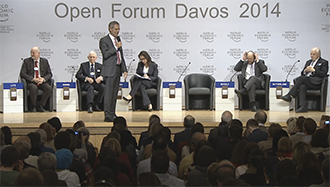Multimedia
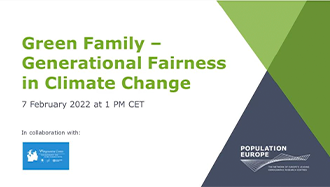
Vodcast
07.02.2022 Green Family – Generational Fairness in Climate Change
The Wittgenstein Centre and Population Europe hosted a Panel Debate with an introductory talk by Erich Striessnig. Read the corresponding report in German.
More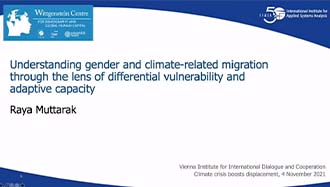
Vodcast
11.11.2021 Understanding gender and climate-related migration
Raya Muttarak was a speaker at an event titled "Climate crisis boosts displacement" organized by the Vienna Institute for International Dialogue and Cooperation (VIDC) on November 4th 2021 (from minute 36:30). More information
More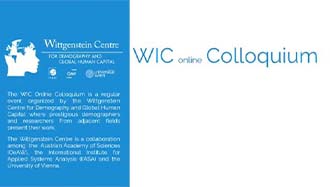
Vodcast
2021 Wittgenstein Centre online Colloquium
19.07.2021: From the Stork to Fertility Apps, Ross Barker
15.07.2021: Covid-19, Social-Distancing and Lock-Downs in a simple Ramsey Economy: The role of networks, Torben Klarl
18.05.2021: MicroWELT – Microsimulation of Disaggregated National Transfer Accounts for the Comparative Study of Welfare State Regimes, Martin Spielauer
More
Podcast
29.01.2019 Climate change link to Arab spring' mass migration
Raya Muttarak was interviewed by Henry Ridgwell on Voice of America. The mass migration flows that followed the Arab Spring in North Africa and the Middle East were partly caused by climate change, according to new research. New research shows that in certain circumstances, climate conditions can lead to conflict, which drives increased migration.
More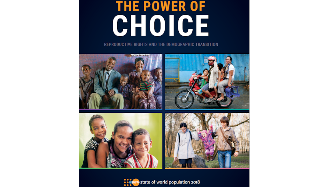
Podcast
18.10.2018 Panel discussion on UNFPA’s State of World Population Report 2018:
"Is Europe facing a population crisis?"
The power of choice: Reproductive rights and the demographic transition - Alanna Armitage, UNFPA Eastern Europe and Central Asia Regional Office (EECARO) - Presentation slides
Global population trends and the challenges arising from imbalances - Prof. Wolfgang Lutz, Wittgenstein Centre (IIASA, VID/ÖAW, WU)
Low fertility in Europe: Regional contrasts and policy responses - Dr. Tomas Sobotka, Wittgenstein Centre (IIASA, VID/ÖAW, WU) - Presentation slides
Demography and democracy - Prof. Shalini Randeria, Institute for Human Sciences (IWM)
More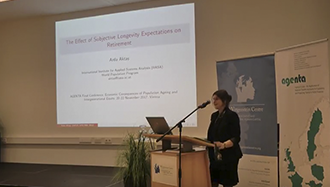
Vodcast
21.11.17 The effect of subjective longevity expectations on retirement
Arda Aktas discussed the effect of subjective longevity expectations on retirementat the final conference of the AGENTA project, organized by the Wittgenstein Centre (IIASA, VID/ÖAW, WU) between 20-22 November 2017 in Vienna.
More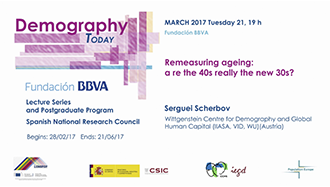
Vodcast
21.03.17 Are the 40s really the new 30s?
Sergei Scherbov explains new methods of measuring population aging with a number of application examples. The presentation is based on new research from the World Population Program Reassessing Aging from a Population Perspective (Re-Aging) project. It was part of the Lecture Series "Demography today" that is organized at the Spanish National Research Council. Watch the full lecture here.
More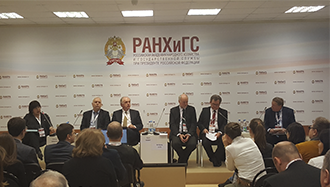
Vodcast
13.01.2017 The Gaidar Forum 2017. Russian Demographic Data Sheet 2016
The first Russian Demographic Data Sheet, a collaboration between IIASA, the Russian Presidential Academy of National Economy and Public Administration (RANEPA), and the Russian Federal State Statistics Service (Rosstat), was presented at the high-level Gaidar Forum on 13 January 2017 in Moscow. In thies dedicated session, Sergei Scherbov presented the methodological background of the applied alternative indicators of population ageing and the major results.
More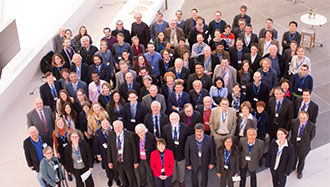
Vodcast
05.-07.12.2016 Wittgenstein Centre Conference: "Variations on the Themes of Wolfgang Lutz"
The Wittgenstein Centre Conference 2016 was devoted to the scientific career and achievements of Wolfgang Lutz, who turned 60 in December 2016, and brought together international researchers in the field of Demography. The sessions of the conference covered: Human Capital; Fertility and Family Dynamics; Ageing; Multiregional/Multistate Projections; (Probabilistic) Projections; Population, Development and Environment
More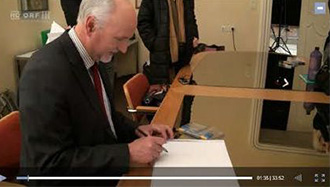
Vodcast
30.03.2016 science.talk: Bevölkerungsforscher Wolfgang Lutz
Barbara Stöckl talks to Wittgenstein awardee Wolfgang Lutz about our changing world and our future challenges in science.talk by ORF. More information to the show is available on the ORF website.
More
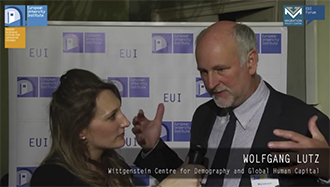
Vodcast
04.02.2016 The impact of education on migration in Europe
During the European University Institute’s Forum on Migration, Citizenship and Demography on 4 February 2016 in Florence Wolfgang Lutz was interviewed to the question how increased global education will have an impact on migration in Europe.
More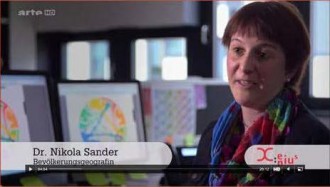
Vodcast
13.10.2015 Demografie - Wie zuverlässig ist sie? Wolfgang Lutz and Nikola Sander on ARTE TV
Wird es am Ende des Jahrhunderts elf Milliarden Menschen auf der Erde geben oder nur neun? In ihren Prognosen liegen die Demografen weit auseinander. Auch für Europa gibt es sehr unterschiedliche Vorhersagen. Dabei haben die Studien der Demografen direkte Konsequenzen. So leiten zum Beispiel Stadtplaner daraus ab, ob eine Region mehr Kindergärten oder größere Friedhöfe braucht. (Quelle: X:enius|ARTE)
Online until 11th January 2016
More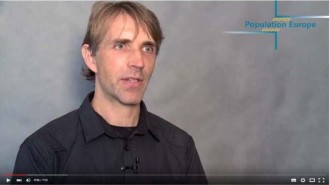
Vodcast
18.08.2015 Population Europe Inter-faces. An Interview with Tomas Sobotka on fertility in times of crisis
The following questions are answered:
Does the recession influence birth rates?
Does it make a difference to family planning in times of economic crisis what kind of job people have?
Are there factors like family support, social networks or the infamous "biological clock" that are helping to overcome these worries?
What policies could encourage people not to postpone their plans to have children in times of economic crisis?
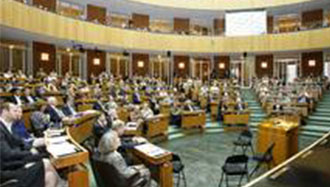
Vodcast
29.09.2011 Wittgenstein Centre Symposium
The inaugural Wittgenstein Symposium Demography, Education and Democracy - A Global Perspective discussed whether international development should be refocused toward providing aid to targeted education and health objectives, and if so, how this could be achieved.
Photo: © Parlamentsdirektion/Carina Ott
More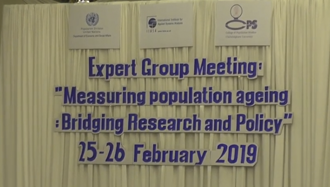
Vodcast
25-26.02.2019 Measuring population ageing: Bridging Research and Policy
The Population Division of the Department of Economic and Social Affairs (UNDESA) of the United Nations, the International Institute for Applied System Analysis (IIASA), and Chulalongkorn University, in collaboration with the Economic Commission for Asia and the Pacific (ESCAP), organized an international expert group meeting entitled “Measuring population ageing: Bridging Research and Policy”, 25-26 February 2019, Bangkok, Thailand.
All presentations can be watched here.
More
Vodcast
16.01.2018 Russian regions on the demographic world map
Sergei Scherbov was the keynote speaker at the Gaidar Forum expert discussion session themed around Russian regions on the demographic world map. The session was centred around the results of the Russian Demographic Datasheet 2019 produced at IIASA. Experts discussed topics including a comparison of regional demographic data with other countries; evaluation of regional demographic development; Russian regions’ population projection until 2050; and population differentiation of Russian regions. (in Russian)
More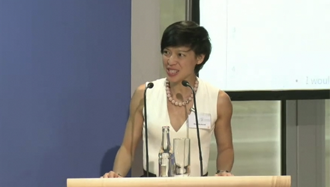
Vodcast
13.06.2018 Brain power for sustainable development, Session III
During Session III of the Leopoldina Symposium "Brain Power for Sustainable Development. The Cognitive Preconditions for a Successful Sustainability Transition", Bilal Barakat gave a presentation entitled "How SDG 4 on Education Relates to Other SDGs" (from minute 2:25) and Raya Muttarak gave a presentation entitled "How Education Contributes to Reducing Vulnerability and Enhancing Adaptive Capacity in the Context of Climate Change" (from minute 20:20).
More
Podcast
26.10.17 Older people are now more active and have more abilities than they used to have
Daniela Weber talks with Radio Sputnik about a recent study on future trends in the prevalence of severe activity limitations among older adults in Europe, conducted together with Sergei Scherbov in the framework of the IIASA Re-aging project.
More
Podcast
02.03.2017 The focus on human populations in climate change research
Raya Muttarak gave an interview about human populations in climate change research to the Austrian radio station FM4 in the show Reality Check. Muttarak referred to a recent study that looks into forecasting societies’ adaptive capacities to climate change that she published together with Wolfgang Lutz in the journal Nature Climate Change.
More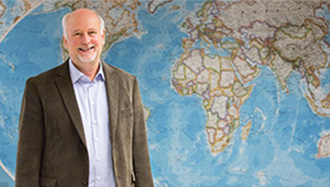
Vodcast
01.12.2016 Which factors will decide the future of humanity?
A WU TV production (in German) on the occassion of Wolfgang Lutz being WU's Researcher of the Month (December 2016).
Wolfgang Lutz and his team have been cooperating with international demographics experts to investigate expected future population developments and how to make it possible for a future population of nine billion to live together in peace. Their results indicate that education plays a much more important role than previously believed.
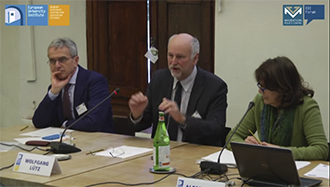
Vodcast
04.02.2016 What we know about future population
The European University Institute’s Forum on Migration, Citizenship and Demography invited Wolfgang Lutz, Gustavo De Santis (University of Florence), Philippe Fargues (MPC), and Juan Dolado (EUI), to discuss the future of Europe’s demography.
More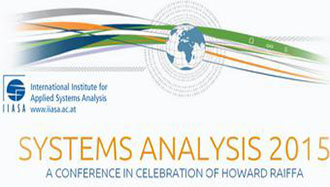
Vodcast
13.11.2015 IIASA Systems Analysis Conference 2015 - Closing Session
Watch the closing session panel on the outlook for systems analysis at the IIASA Systems Analysis 2015 conference, with Don Saari, Martin Lees, Luís Bettencourt, Nadya Komendantova, Raya Muttarak, Stephen Robinson, Peter M. A. Sloot, and Pavel Kabat.
More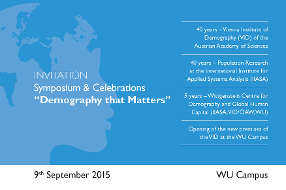
Presentation Slides
10.9.2015 Demography that matters - Presentation of Research Highlights and Plans - Wittgenstein Centre Celebrations & Symposium
40 years population research at IIASA, 40 years Vienna Institute of Demography and 5 years Wittgenstein Centre.
More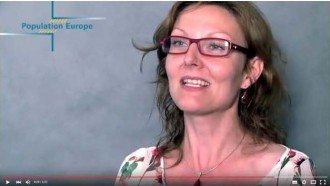
Vodcast
18.08.2015 Population Europe Inter-faces. An interview with Anna Matysiak on childlessness
The following questions are answered:
Why do women remain childless?
What are the most important factors in the life histories of childless women?
Are these factors universal or did you find country differences?
What advice would you give to a young woman who does eventually want to have children?
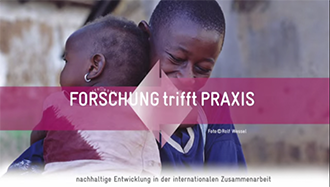
Vodcast
26.05.2015 Education or health?
Wolfgang Lutz was invited by the Deutsche Gesellschaft für Internationale Zusammenarbeit (GIZ) to discuss about "Education or health? What is the key to self-determined family planning?" together with Dr. Heide Richter-Airijoki, head of the GIZ program on development of the health sector in Kenya. (in German)
More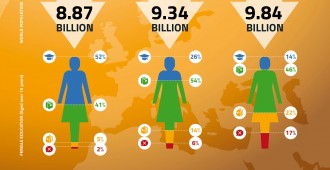
Infographic
23.10.2014 Will the world's population stop growing?
Check out one of the key points from the latest WIC projections at one glance on our infograph: Female education will make the difference.
MorePodcast
30.01.2013 Airtalk with Warren Sanderson
The common perception is that as time marches on, the human population will continue to rise. Advances in technology and health will lead to longer lives, and thus the Earth will be burdened by billions upon billions of hungry mouths to feed, both young and old. And not just food, but oil, land, water and other resources will be gobbled up until there isn’t enough to go around. (...) So what does this mean for humanity? Are we headed out? Or are we going to continue to explode in numbers? Which science fiction future are you more looking forward to? (Copyright: Airtalk 30.01.2013)
More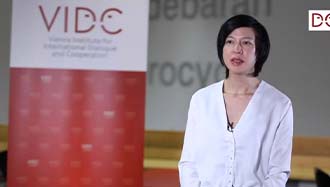
Vodcast
22.11.2021 Interview: Climate crisis boosts displacement
This interview with Raya Muttarak was made in the context of a VIDC panel discussion on November 4th 2021. More information
More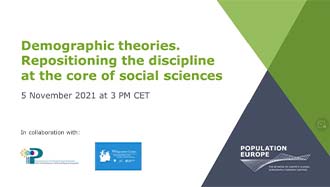
Vodcast
08.11.2021 Repositioning demography at the core of social sciences
Watch the book launch of "Advanced Introduction to Demography" authored by Wolfgang Lutz and a Panel Discussion with Alícia Adsera, Francesco C. Billari, Joshua R. Goldstein, Leiwen Jiang, and Landy Lizbeth Sánchez Peña.
More
Podcast
26.02.2019 Population explosion: Wrong conclusion?
Wolfgang Lutz was interviewed for the ntv podcast "Wieder was gelernt" where he discussed why he is expecting the world population to shrink again. Listen to the full podcast (in German) on the ntv website.
More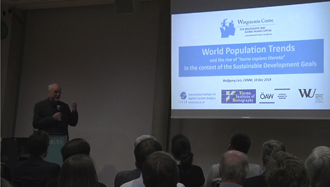
Vodcast
11.12.2018 Population trends and the global sustainable development goals
Wolfgang Lutz gave a presentation entitled "Population trends and the global sustainable development goals" in the framework of the S.M.A.R.T. lecture series at Research Center for Molecular Medicine of the Austrian Academy of Sciences (CeMM) in Vienna.
More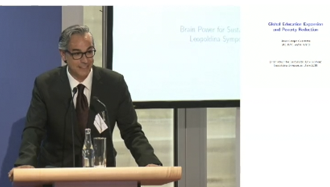
Vodcast
13.06.2018 Brain power for sustainable development, Session II
Jesus Crespo Cuaresma gave a presentation entitled "Global Education Expansion and Poverty Reduction" during Session II of the Leopoldina Symposium "Brain Power for Sustainable Development. The Cognitive Preconditions for a Successful Sustainability Transition" (from minute 19:30).
More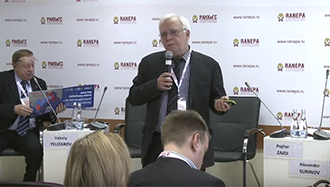
Vodcast
18.01.18 Aging Demographic Data Sheet 2018
The first Aging Demographic Data Sheet that comprehensively presents new measures of aging for all countries in the world and world regions, including projections for 2050, was presented at the high-level Gaidar Forum on 18 January 2018 in Moscow. In the dedicated session at the conference, Sergei Scherbov presented the methodological background of the applied alternative indicators of population ageing and the major results.
More
Podcast
29.07.2017 Who came during the 2015 European refugee ‘crisis’?
Judith Kohlenberger was interviewed for Talking Migration about recent results from the “Displaced Persons in Austria Survey (DiPAS)”. Talking Migration is a podcast produced by Dr Clara Sandelind at the University of Sheffield, supported by Sheffield Migration Research and the Centre for Research in the Social Sciences at the University of Huddersfield. The podcast aims at bringing academics, stakeholders, policy makers, NGOs and activists together in conversations about issues in international migration today.
The contribution “Who came during the 2015 European refugee crisis?” can be listened to here and is also available on iTunes.
Logo ©Talking Migration
More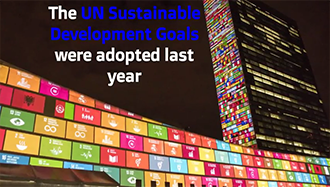
Vodcast
16.01.2017 Population growth and the Sustainable Development Goals
Achieving the Sustainable Development Goals would significantly slow population growth, according to a new Wittgenstein Centre study authored by Guy Abel, Bilal Barakat, Samir KC and Wolfgang Lutz. Read the full story: http://www.iiasa.ac.at/web/home/about...
More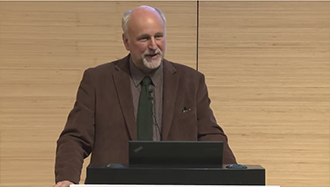
Vodcast
14.12.2017 Human capital as the root cause of development and policy priority for the 21st century
Wolfgang Lutz gave a talk entitled “Human capital as the root cause of development and policy priority for the 21st century” at the Institute of Science and Technology Austria (IST Austria) as part of the IST Science and Society Lecture series. In his talk he discussed the state-of-the-art and multi-dimensional demographic analyses of changing population sizes and structures.
More
Podcast
07.10.2016 - Pinpointing the human value in the migrant masses
Wolfgang Lutz, Zakarya Al Zalak and Judith Kohlenberger were interviewed by Deutsche Welle journalist Kerry Skyring about the background and human value of refugees, results from a recent study conducted at the Wittgenstein Centre.
More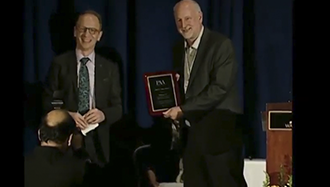
Vodcast
01.04.2016 Mindel C. Sheps Award ceremony at the PAA 2016
Wolfgang Lutz was awarded the 2016 Mindel Sheps Award for his outstanding contributions to demographic methodology. The award was presented by Hans-Peter Kohler and accepted by Wolfgang Lutz at the Population Association of America meeting on 1 April 2016.
More
Vodcast
11.02.2016 Population, Education and the the Sustainable Development Goals - Presentation by Wolfgang Lutz
To generate ideas and share knowledge of sustainability solutions, IIASA, the National Academy of Sciences, and the Austrian Embassy in Washington have co-sponsored a symposium under the theme "International Scientific Cooperation for Global Sustainability"
More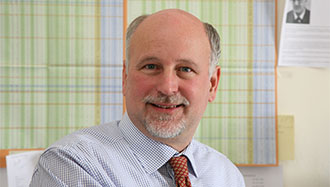
Podcast
11.01.2016 How immigration changes a society - Interview with Wolfgang Lutz
Wolfgang Lutz gave an interview on migration and a recent study on who are the refugees in Austria to the Austrian radio station OE1. Together with Judith Brandner he discusses how migration has changed over time in the show Radiokolleg (in German).
More
Vodcast
31.8.2015 Warren Sanderson and Sergei Scherbov rethink population aging
Warren Sanderson and Sergei Scherbov explain why the substantial changes in life expectancy and health status have rendered traditional demographic measures inadequate for the analysis of aging at the population level in the 21st century.
More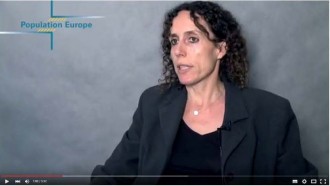
Vodcast
18.08.2015 Population Europe Inter-faces. An interview with Anne Goujon on education
The following questions are answered:
What impact did education have oon the development of our societies?
How can you complete missing data about edication in a reliable way?
What are the main obstacles in this process of data reconstruction?
Once this data is completed, what can we learn from it for the future?

Vodcast
22.05.2015 Sergei Scherbov at the Shanghai Forum
Sergei Scherbov was invited to give a presentation on reassessing aging at this event and to participate in the round table discussion entitled “Dealing with Asia’s Aging Challenges” which was chaired by Professor Xizhe Peng (Fudan University).
More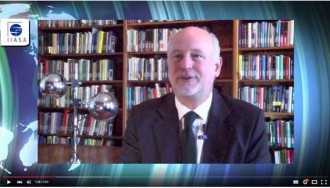
Vodcast
20.10.2014. Wolfgang Lutz on the differences of the Centre's and the UN population projections
Wolfgang Lutz explains the difference between the estimated population growth published by the United Nations Population Division and several universities and the new 2014 Wittgenstein Centre projections.
More
Vodcast
09.05.2014 The Future Population of our Planet
Wolfgang Lutz shows how universal primary and secondary education for all young women will slow population growth, generate greater economic growth, improve people's health, reduce population's vulnerability to natural disasters, and enhance democracy.
MoreDemography of the Seven Billion
24.01.2013 "Demography of the Seven Billion" Lecture by Dr. Warren C. Sanderson
As part of the 7 Billion and You Lecture and Discussion Series at Simon Fraser University in Vancouver
MoreThe Wittgenstein Centre aspires to be a world leader in the advancement of demographic methods and their application to the analysis of human capital and population dynamics. In assessing the effects of these forces on long-term human well-being, we combine scientific excellence in a multidisciplinary context with relevance to a global audience. It is a collaboration among the Austrian Academy of Sciences (ÖAW), the International Institute for Applied Systems Analysis (IIASA) and the University of Vienna.

